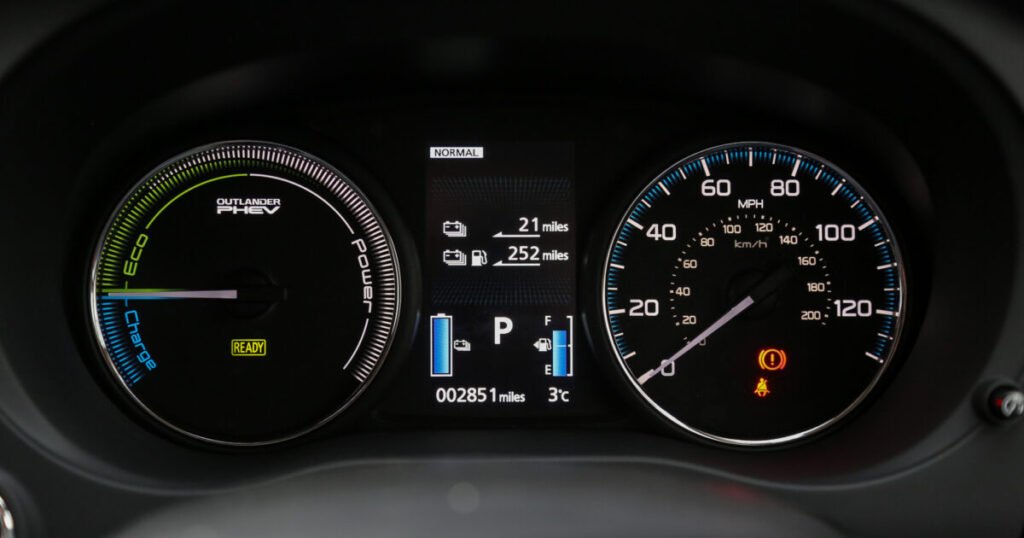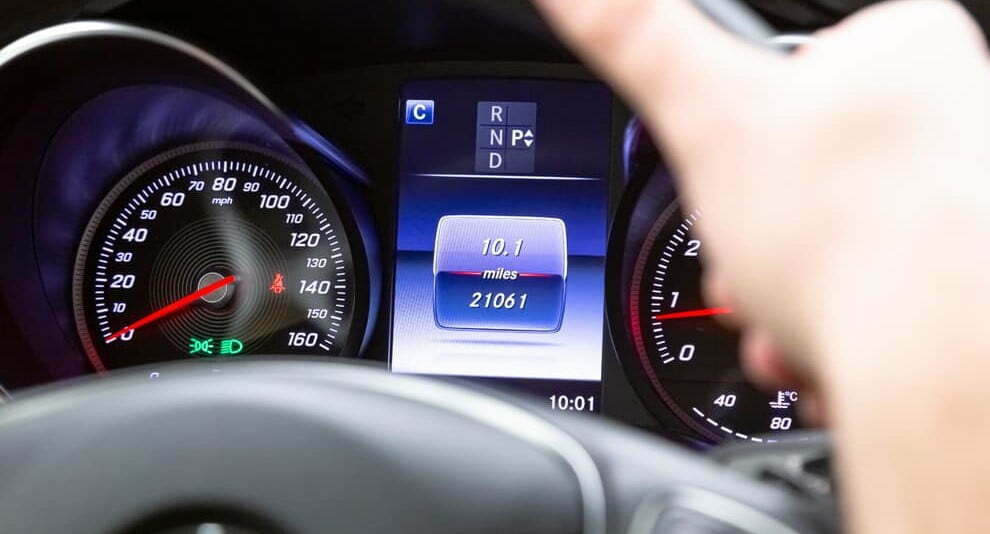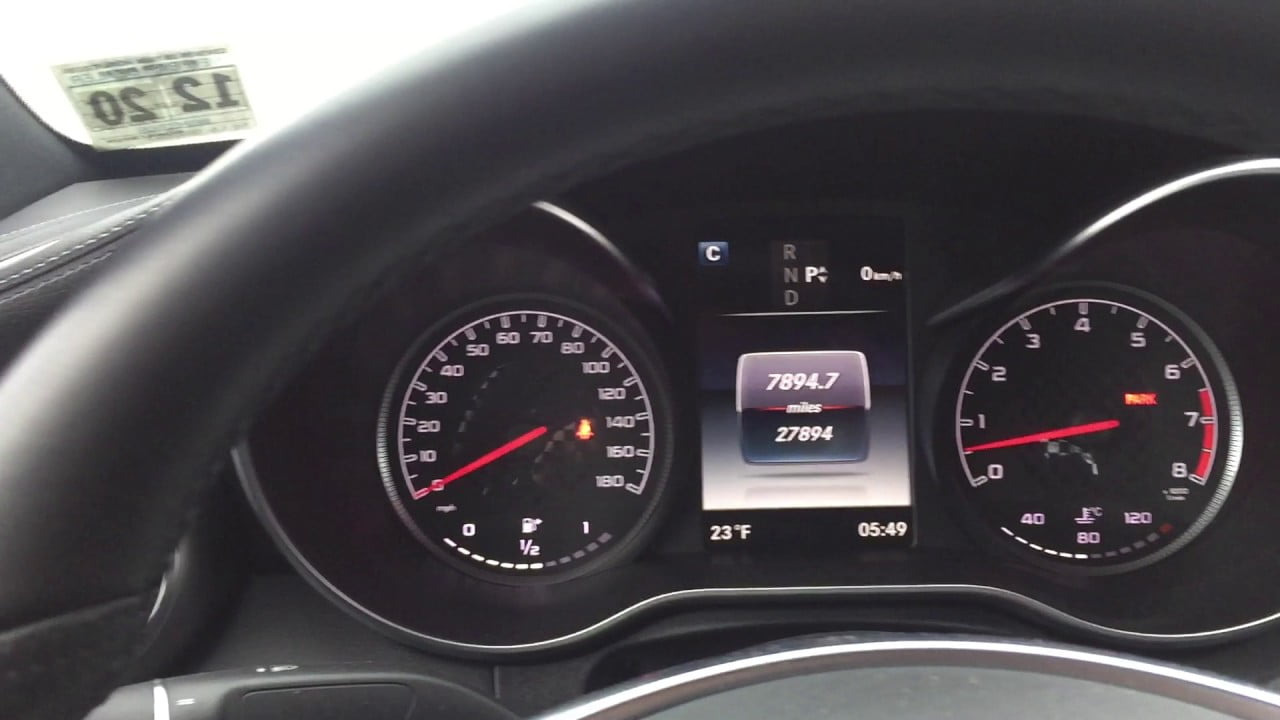Last updated on January 11th, 2024 at 11:37 pm
In this article, we will discuss how do i check mileage on car and the importance of regularly checking the mileage on your car.
Properly tracking and maintaining the mileage on your car can help you to stay on top of scheduled maintenance, prevent unexpected breakdowns, and potentially save you money on fuel and repairs.
We will also discuss some common problems that can arise with the mileage on a car and how to address them.
Whether you are a new car owner or have been driving for years, this article will provide valuable information on how to keep track of your car’s mileage
Why You Should Check Your Mileage
There are several reasons why you should check your car’s mileage on a regular basis.
First and foremost, properly tracking and maintaining the mileage on your car can help you to stay on top of scheduled maintenance and prevent unexpected breakdowns.
Most cars have specific maintenance tasks that need to be performed at certain mileage intervals, such as oil changes, tire rotations, and brake inspections.
By regularly checking your mileage and recording it in a log or notebook, you can make sure that you don’t miss any important maintenance tasks and keep your car running smoothly.
Additionally, checking your car’s mileage can also help you to save money on fuel and repairs. By monitoring any changes in your car’s mileage, you can identify any potential problems early on and have them addressed before they become more serious (and more expensive) to fix.
For example, if you notice that your car’s mileage is suddenly decreasing, it may be a sign of a mechanical issue such as a faulty oxygen sensor or a problem with the fuel injectors. Addressing these issues early on can help to prevent more costly repairs down the road.
Overall, regularly checking your car’s mileage is an important part of being a responsible car owner. It can help to keep your car running smoothly, prevent unexpected breakdowns, and potentially save you money on fuel and repairs.
How do I check mileage on car

To check the mileage on your car, follow these steps:
- Locate the odometer on your dashboard. This is typically a small digital or analog display that shows the total number of miles that your car has traveled.
- Turn on the ignition, but do not start the car. This will allow the odometer to light up and display the current mileage.
- Look at the odometer and note the number of miles shown. If your car has an analog odometer, you may need to read the numbers on the display by looking through the small window on the dashboard.
- Record the mileage in a log or notebook. It’s a good idea to keep track of your car’s mileage over time so that you can monitor any changes and stay on top of scheduled maintenance.
- Repeat this process every time you fill up your gas tank or at regular intervals (such as once per month). This will help you to track any changes in your car’s mileage and identify any potential problems.
If you have any difficulty reading the odometer or if it is not functioning properly, you may need to consult your owner’s manual or take your car to a mechanic for assistance. Additionally, if you notice any sudden changes in your car’s mileage, it may be a sign of a mechanical issue and you should have it checked by a professional.
What the Mileage on Your Car Says About Its Value
The mileage on your car is one of the factors that can affect its value. In general, cars with lower mileage are considered to be more valuable than cars with higher mileage. This is because cars with lower mileage are typically seen as being newer and having had less wear and tear. Additionally, cars with lower mileage are likely to have a longer lifespan and may be less likely to need repairs.
However, it’s important to note that the mileage on your car is not the only factor that determines its value. Other factors that can affect the value of your car include the make and model, the condition of the vehicle, and any additional features or upgrades. Additionally, the current market demand for your particular car can also play a role in its value.
Importance of regularly checking the mileage

There are several reasons why it is important to regularly check the mileage on your car:
- Accurate mileage information can help you determine the value of your car. When you are looking to sell or trade in your car, the mileage is one of the key factors that potential buyers will consider. By regularly checking and maintaining accurate mileage information, you can ensure that your car is valued accurately and that you receive a fair price for it.
- Accurate mileage information can help you track your car’s maintenance needs. Many car manufacturers recommend specific maintenance tasks at certain mileage intervals. By regularly checking your car’s mileage, you can ensure that you are performing the necessary maintenance tasks at the appropriate times, which can help to keep your car running smoothly and reliably.
- Accurate mileage information can help you track your driving habits. By regularly checking your car’s mileage, you can track how much you are driving and identify any changes in your driving habits over time. This can help you to make adjustments to your driving habits and save money on fuel and other expenses.
Overall, regularly checking your car’s mileage is important for maintaining the value of your car and ensuring that it is well-maintained and running smoothly.
How to Calculate a Used Car’s Mileage
To calculate a used car’s mileage, you will need to know the car’s current odometer reading and its previous odometer reading. You can then subtract the previous reading from the current reading to find the total distance that the car has been driven.
For example, if the current odometer reading is 90,000 miles and the previous reading was 85,000 miles, the car has been driven a total of 5,000 miles.
Tips for Driving Fewer Miles to Improve Your Car’s Mileage
There are a few things you can do to improve your car’s mileage and reduce your carbon footprint. One of the easiest is to drive fewer miles. Here are a few tips for reducing the amount of miles you rack up every year:
- Plan your trips in advance and combine errands to avoid making multiple short trips. This can save you time and fuel.
- Use public transportation, carpool, or bike whenever possible. Not only will this reduce the number of miles you drive, but it can also save you money on gas.
- Avoid rush hour traffic, as stop-and-go driving can significantly reduce your fuel efficiency. Try to plan your trips for off-peak hours whenever possible.
- Keep your car well-maintained. Regularly check your tire pressure, oil level, and air filter, as these can all affect your fuel efficiency.
- Use cruise control whenever possible. This can help you maintain a steady speed and save fuel.
- Avoid aggressive driving, such as speeding, rapid acceleration, and hard braking. These driving habits can significantly decrease your fuel efficiency.
- Consider purchasing a fuel-efficient vehicle. Some cars are designed to be more fuel-efficient than others, so choosing a car with good fuel economy can help you save money on gas and drive fewer miles.
Common problems that arise the mileage
Here are some common problems that can arise with the mileage on your car, and how to fix them:
- The odometer is not working properly. If your car’s odometer is not working properly, it may not be providing accurate mileage information. To fix this problem, you will need to have the odometer repaired or replaced by a qualified mechanic.
- The odometer has been tampered with. In some cases, the mileage on your car’s odometer may have been intentionally altered or “rolled back” to make the car appear to have less mileage than it actually does. If you suspect that the mileage on your car’s odometer has been tampered with, you should contact your car’s manufacturer or a qualified mechanic for assistance.
- The odometer is not reading correctly. In some cases, the mileage on your car’s odometer may not be reading correctly due to a malfunction or other issue. If you notice that the mileage on your car’s odometer is not accurate, you should have the odometer checked and repaired by a qualified mechanic.
Overall, if you notice any issues with the mileage on your car, it is important to have the problem resolved as soon as possible to ensure that you are maintaining accurate mileage information and tracking your car’s maintenance needs.
FAQS on check mileage on car
Q: Can a VIN number tell me mileage?
A: A vehicle identification number (VIN) cannot directly tell you the mileage of a car. The VIN is a unique 17-digit code that is assigned to every vehicle produced in the United States. It contains information about the car’s manufacturer, model, body style, and other characteristics, but it does not include the car’s current mileage.
Q: Is there a way to check the mileage on my car without looking at the odometer?
A: In some cases, you may be able to check the mileage on your car without looking at the odometer.
For example, many newer cars have a digital display that shows the current mileage and other information. You can access this display by pressing a button on your car’s dashboard or steering wheel.
Additionally, some cars have a mileage tracking feature that allows you to view the current mileage and track your driving habits using a smartphone app or other device
Q: What should I do if I notice that the mileage on my car’s odometer is not accurate?
A: If you notice that the mileage on your car’s odometer is not accurate, you should contact your car’s manufacturer or a qualified mechanic to have the issue resolved.
In some cases, the odometer may need to be repaired or replaced to ensure that it is providing accurate mileage information.
Q: Can I reset the mileage on my car?
A: In some cases, it may be possible to reset the mileage on your car. However, resetting the mileage can be illegal in some jurisdictions, and it can also affect the value of your car and make it more difficult to track its maintenance needs. It is generally best to avoid resetting the mileage on your car unless it is absolutely necessary.
Conclusion
I hope you enjoyed the above article on “How do I check mileage on car.” Ensuring your vehicle’s mileage accuracy is crucial for maintenance and resale.
Regularly check mileage on your car by using the odometer or modern digital displays. This simple practice helps you track fuel efficiency and identify potential issues early on.
Remember, staying informed about your car’s mileage is key to its longevity and overall performance. So, make it a habit to periodically check mileage on your car to keep it running smoothly and efficiently.
FOLLOW US
